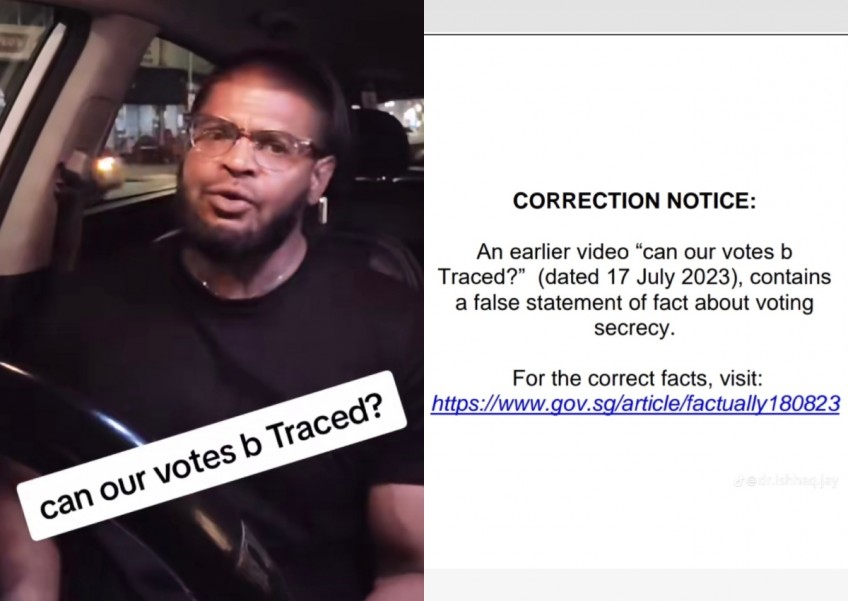TikToker issued Pofma order over false claims Government can trace votes to voters 'in order to penalise them'


SINGAPORE – A TikTok user has been issued a correction notice under the law against fake news, for a post on the social media platform that contained false claims regarding vote secrecy.
In a statement on Friday, the Elections Department (ELD), which falls under the Prime Minister’s Office, said TikTok user dr.ishhaq.jay had in a post on July 17 falsely claimed that the Government is able to trace votes back to the voter in order to penalise them.
The correction order was issued by the Protection from Online Falsehoods and Manipulation Act (Pofma) office under the instruction of Minister-in-Charge of the Public Service and Education Minister Chan Chun Sing.
A statement on Government fact-checking website Factually gave the following explanation as to why the claims were false:
The judge hearing the application must be satisfied that the inspection is required for the purposes of instituting or maintaining a prosecution or an application under Section 90 of the PEA, which seeks to void an election on certain limited grounds, including breaches of the PEA that affected the election result or corrupt or illegal practices committed in the election by a candidate.
Therefore, the Government cannot trace who a voter has voted for, as it wishes, the Factually article concludes.
Under the correction notice, dr.ishhaq.jay will be required to create a new TikTok post which states that his earlier post contained a false statement, and also provide a link to the Government’s clarification.
TikTok itself was also issued a targeted correction direction, in relation to the post by dr.ishhaq.jay, which stipulates that a correction notice be sent to all TikTok users in Singapore who had accessed the post.
This article was first published in The Straits Times. Permission required for reproduction.